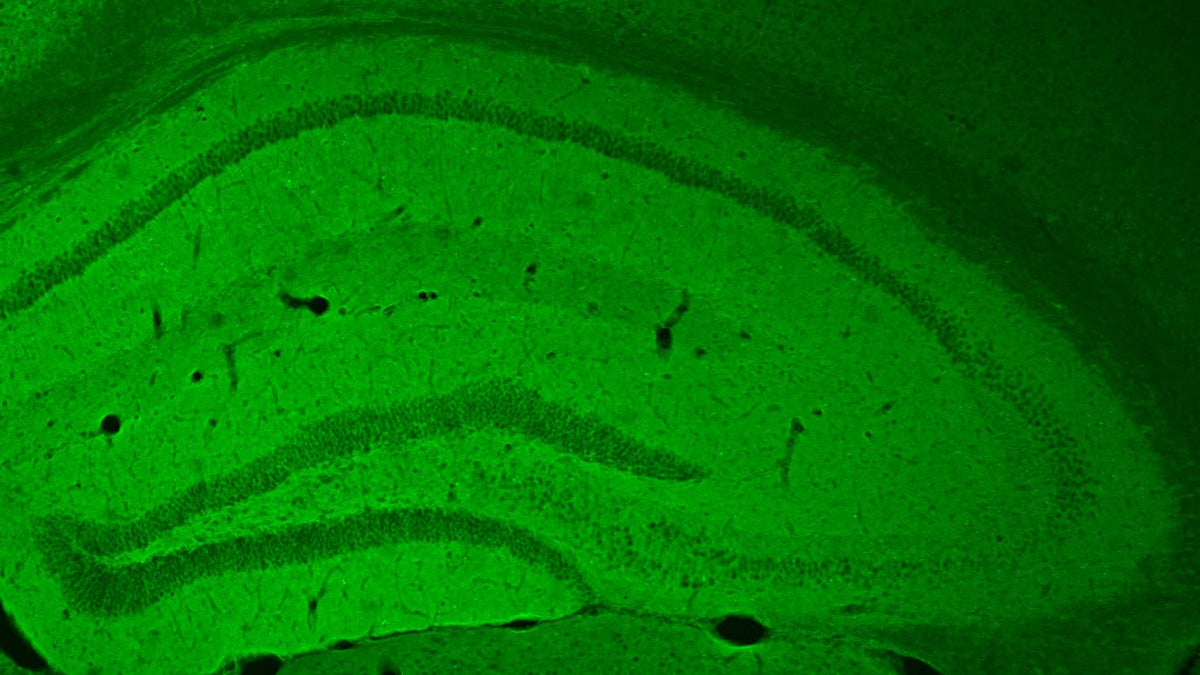Penn scientists find way to prevent memory loss after sleep deprivation

The hippocampus of a mouse glows green where cells have taken up a receptor that triggers the cAMP signaling pathway. (Image courtesy of the University of Pennsylvania)
Scientists have known that sleep disruption can prevent memories from forming, but details have been fuzzy. A University of Pennsylvania study now has identified the brain circuits involved.
Neuroscientist and study lead author Robbert Havekes said researchers identified specific neurons in the hippocampus of mouse brains that are responsible for encoding memories during sleep.
“That region is particularly vulnerable to sleep loss,” he said. “Just like if you would take a processor out of a computer, nothing works anymore.”
In the study, published in the Journal of Neuroscience, the team had mice explore an environment with several carefully placed objects. Some mice were then allowed to sleep while others were kept awake for five hours.
The next day, researchers moved one of the objects and observed whether the mice noticed the change by spending extra time sniffing at the new location.
The rested mice performed well; those who lost sleep failed to observe the difference.
If the scientists artificially activated a specific signaling pathway known as cAMP in those hippocampal neurons, however, the sleep-deprived mice had no problem remembering.
Havekes said the team now wants to see if that occurs when the mice are chronically sleep-deprived, which would more closely mimic the type of sleep loss that most people experience.
“Our average sleep time has been reduced by 25 percent over just 60 years,” he said.
Eventually, Havekes said, researchers would like to come up with a drug that can do the same for people. Such a pharmacological tool might prove especially handy for physicians who need to stay sharp even when working long shifts.
Until then, the best memory protection is to get a full night’s sleep.
WHYY is your source for fact-based, in-depth journalism and information. As a nonprofit organization, we rely on financial support from readers like you. Please give today.

